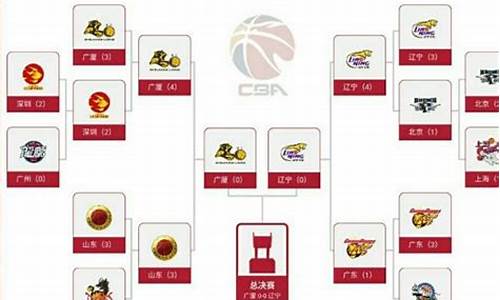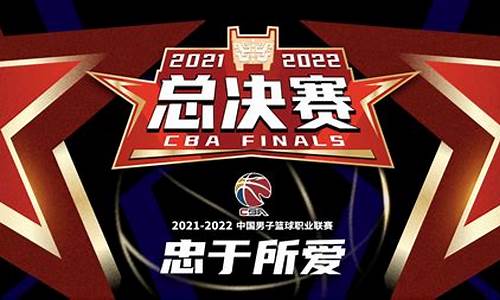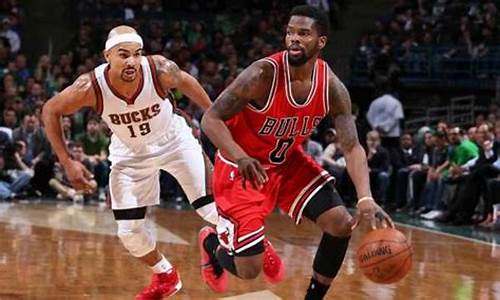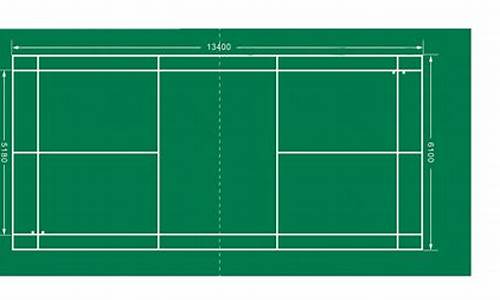意甲taiwanfansclub_意甲赛程
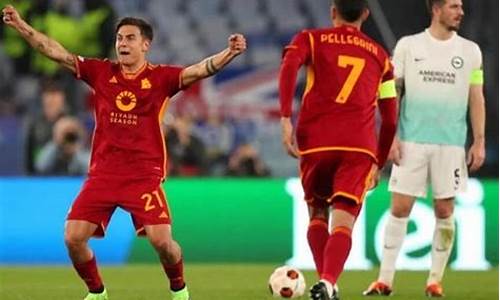
Manchester United F.C. is a world-famous English football club. It is based at Old Trafford Football Ground, Trafford, Greater Manchester. Manchester United is one of the most successful football clubs in English football history, hing won the FA Premier League/Football League 15 times, FA Cup 11 times, the League Cup twice, the European Cup twice, the UEFA Cup Winners Cup once, the Intercontinental Cup once, and the European Super Cup once. The club has had the highest erage attendance in English football for the past 34 seasons, with the exception of 1987-1989 during redevelopment at Old Trafford. [1]. The 'Red Devils' are considered to be the best supported football club in the world.
The club was formed as Newton Heath F.C. in 1878 as the works team of the Lancashire and Yorkshire Railway depot at Newton Heath. After nearing bankruptcy in 1902, the club was taken over by J. H. Dies who changed its name to Manchester United. The Old Trafford Football Ground was bombed during the Second World War, leading the club to seek charity from their then-illustrious neighbours Manchester City, who allowed them to play their games at Maine Road for a period. United ointed Sir Matt Busby as manager after the Second World War, and his then-unheard-of policy of producing most of the players through the club's youth team brought great success, with the club winning the Football League in 1956 and 1957. This success was halted by the Munich air disaster of 1958, in which eight of the club's players died. It was thought that the club might fold, but instead went on to win the football league in 1965 and 1967, and the European Cup in 1968.
The club did not see success again until the 1990s and early 2000s when Sir Alex Ferguson guided it to eight league championships in eleven years, most recently in the 2002-03 season. In 1999, Manchester United became the only team to win the UEFA Champions League, FA Premier League and the FA Cup in the same season. The club had been run as a Public Limited Company since 1991, and an attempted takeover by Rupert Murdoch had been blocked by the British Government in 1998, but in 2005 Malcolm Glazer completed a hostile takeover of the club which plunged the club into massive de as his bid was heily funded by borrowing on the assets owned already by Manchester United.
History
Early years (1878-1945)
Main article: Manchester United pre-1945
The Busby years (1945-1969)
Main article: Manchester United 1945-1969
Matt Busby was ointed manager in 1942 and took a then-unheard of roach to his job, joining the players for training as well as performing administrative tasks. He was immediately successful, with the club finishing second in the league in 1947 and winning the FA Cup in 1948.
He adopted a policy of bringing in players from the youth team whenever possible, and the team won the league in 1956 with an erage age of only 22. This youth policy has now become instrumental in the club's success. The following season, they won the league again and reached the FA Cup final, losing to Aston Villa. They also became the first English team to compete in the European Cup, and reached the semi-final.
Tragedy struck the following season, when the plane carrying the team home from a European Cup match crashed on take-off at a refueling stop in Munich. The Munich air disaster of 6 February 1958 claimed the lives of eight players and another fif passengers. There was talk of the club folding but, with Jimmy Murphy taking over as manager while Matt Busby recovered from his injuries, the club continued playing with a makeshift side. Despite this, they reached the FA Cup final again, where they lost to Bolton.
Busby rebuilt the team throughout the early 1960s, signing players such as Denis Law and Pat Crerand. The team won the FA Cup in 1963, then won the league in 1965 and 1967 and the European Cup in 1968, the first English Club to do so. This team was notable for containing three European Footballers of the Year: Bobby Charlton, Denis Law and George Best. Busby resigned as manager in 1969 and was replaced by the reserve-team and former United player Wilf McGuinness.
1969-1986
Main article: Manchester United 1969-1986
Manchester United F.C badge in the 10s.United struggled to replace Busby, and the team struggled under Wilf McGuinness and Frank O'Farrell before Tommy Docherty became manager at the end of 12. Docherty, or 'the Doc', sed United from relegation that season but United were relegated in 14. The team won promotion at the first attempt and reached the FA Cup final in 16, but were beaten by Southampton. They reached the final again in 17, beating Liverpool. In spite of this success, and his popularity with the supporters, Docherty was sacked soon after the final when he was found to he had an affair with the physiotherapist's wife.
De Sexton replaced Docherty as manager in the summer of 17, and made the team play in a more defensive formation. This style was unpopular with supporters, who were used to the attacking football preferred by Docherty and Busby, and after failing to win a trophy Sexton was sacked in 1981, despite winning his last seven games in charge.
He was replaced by the flamboyant Ron Atkinson who immediately broke the British record transfer fee to sign Bryan Robson from West Brom. Atkinson's team featured new signings such as Jesper Olsen and Gordon Strachan playing alongside the former youth-team players Norman Whiteside and Mark Hughes. United won the FA Cup in 1983 and 1985 and were overwhelming fourites to win the league in the 1985-86 season after winning their first ten league games, opening a ten-point gap over their rivals as early as October. The team's form collapsed, however, and United finished the season in fourth place. The poor form continued into the following season, and with United on the edge of the First Division's relegation zone, Atkinson was sacked.
Alex Ferguson era, pre-treble (1986-1998)
Main article: Manchester United 1986-1998
Alex Ferguson arrived from Aberdeen FC to replace Atkinson and guided the club to an 11th place finish. The following season (1987-88), United finished second, with Brian McClair becoming the first United player since George Best to score twenty league goals in a season.
However, United struggled badly throughout 1989 and were nearly relegated, with many of Ferguson's signings not reaching the expectations of the fans. There was hope that Ferguson would be sacked at the beginning of 1990 but a win in the third round of the FA Cup over Nottingham Forest kept the season alive and United went on to win the competition, beating Crystal Palace on a replay in the final.
United won the European Cup Winners' Cup in 1990/91, beating that season's Spanish champions Barcelona in the final, but the following season was a disointment for United as a late season slump saw them miss out on the league to rivals Leeds United. Meanwhile in 1991 the club had floated on the London Stock Exchange with a valuation of ?18 million, thus bringing its finances into the public eye as never before.
The arrival of Eric Cantona in November 1992 provided the crucial spark for United, and blending with the best of trusted talent in Gary Pallister, Denis Irwin and Paul Ince, as well as budding stars like Ryan Giggs, they finished the 1992/93 season as Champions for the first time since 1967. They won the double (the league and the FA Cup) for the first time the following season, aided by the capture of Roy Keane, a determined midfielder from Nottingham Forest. In the same year however, the club was plunged into mourning following the death of legendary manager and club president Matt Busby, who died on 20 January 1994.
In 1994/95, Cantona received an eight month suspension for jumping into the crowd and assaulting Crystal Palace supporter Matthew Simmons, in United's game at Selhurst Park. Drawing their last league match and losing to Everton in the FA Cup final left United as runners-up in both the league and FA Cup. Ferguson then outraged the supporters by selling key players and replacing them with players from the club's youth team, including Did Beckham, Gary Neville, Phil Neville and Paul Scholes. The new players, several of whom quickly became regular internationals for England, did surprisingly well and United won the double again in 1995-96. This was the first time any English club had won the double twice.
United's European unbeaten home record was broken by Fenerbah?e when they won 1-0 on October 30, 1996 with a deflected Elvir Boli? goal.
They won the league in 19, and Eric Cantona announced his retirement from football at the age of 30. They started the following season (19/98) well, but they finished the season in second place, behind the double-winning champions Arsenal.
The treble (1998-99)
Main article: Manchester United 1998-1999
1998-99 was when Manchester United had the most successful season in English club football history as they became the first and only English team to win The Treble - winning the Premiership, FA Cup and UEFA Champions League in the same season. After a very tense Premier League season, Manchester United won the title on the final day beating Tottenham Hotspur 2-1, whilst Arsenal won 1-0 with Aston Villa. Winning the Premiership was the first part of the Treble in place, the one part that manager Alex Ferguson described as the hardest. In the FA Cup Final United faced Newcastle United and won 2-0 with goals from Teddy Sheringham and Paul Scholes. In the final match of that season, the 1999 UEFA Champions League Final they defeated Bayern Munich in what was then considered the greatest comeback ever witnessed. After going down to an early goal from a Mario Basler free kick, United chased the game for 85 minutes. After 90 minutes they forced a corner which was converted home by late substitute Teddy Sheringham. Not giving up, Man Utd went for a second and it came again from a corner, Ole Gunnar Solskjaer, another late substitute, poked it into the roof of the net. Ferguson was subsequently knighted for his services to football.
After the treble (1999-present)
Main article: Manchester United 1999-present
United won the league in 2000 and 2001 but the press saw these seasons as failures as they failed to regain the European Cup. Ferguson adopted more defensive tactics to make United harder to beat in Europe but it was not a success and United finished the season in third place in 2002. They regained the league the following season (2002-03) and started the following season well, but their form dropped significantly when Rio Ferdinand received an eight month suspension for missing a drugs test. They did win the 2004 F.A. Cup, however, knocking out Arsenal (that season's eventual champions) on their way to the final in which they beat Millwall.
The 2004-05 season was characterised by a failure to score goals, mainly due to the injury of striker Ruud van Nistelrooy and United finished the season trophyless and in third place in the league. This time, even the "consolation prize" of the F.A. Cup eluded them as Arsenal beat United on penalties after a goalless match. Off the pitch, the main story was the possibility of the club being taken over and at the end of the season, Tampa businessman Malcolm Glazer, (who also owns the American Football team Tampa Bay Buccaneers), acquired a controlling interest in the club. United made a poor start to the 2005-06 season, with midfielder Roy Keane leing the club to join his boyhood heroes Celtic after publicly criticising several of his teammates, and the club failed to qualify for the knock-out phase of the UEFA Champions League for the first time in over a decade after losing to Portuguese team SL Benfica. Their season was also dealt cruel blows with injuries to key players such as Gabriel Heinze, Alan Smith and Paul Scholes. However, they were prevented from being left empty handed in successive seasons - a disointment not endured in the last 17 years - by winning the 2006 League Cup beating newly promoted Wigan in the final 4-0. United also ensured a second-place finish and automatic Champions League qualification on the final day of the season by defeating Charlton Athletic 4-0.
The Malcolm Glazer takeover
Main article: Malcolm Glazer takeover of Manchester United
On May 13 2005, businessman Malcolm Glazer acquired a controlling interest in the club through his investment vehicle Red Football Ltd. in a takeover valuing it at roximately ?800 million ($1.47 billion). On May 16, he increased his share to the 75% necessary to delist the club from the Stock Exchange, making it private again, and announced his intention to do so within 20 days. On 7 June he ointed his sons Joel, Avram, and Bryan to the P.L.C. board of Manchester United as a non-executive directors. It was for a while expected that Joel would be installed as the new Chairman, however that never hened. At the same time Sir Roy Gardner resigned his position as Chairman of the P.L.C. board, along with non-executive directors Jim O'Neill and Ian Much. Malcolm Glazer also re-ointed Andy Anson as Commercial Director after voting him off the Board at the previous M. He also retained Chief Executive Did Gill and Finance Director Nick Humby in their current positions in spite of their pre-takeover descriptions of the Glazer's business plan as being "aggressive and unworkable".
In July 2006 the club announced a refinancing package. Previously the de taken on by the Glazers to financing the club was split between the club and the family, but now it will all be in the club. The total amount will be ?660 million, on which interest payments will be ?62 million a year. This is a 30% reduction in interest charges. The club stated, "The value of Manchester United has increased in the last year, which is why lenders want to invest in the club.... 'This move represents good housekeeping and it ensures that Sir Alex Ferguson will be provided with sufficient funds to compete in the transfer market." The Manchester United Supporters' Trust responded, "'The amount of money needed to be repaid overall is huge.... 'The interest payment is one thing but what about the actual ?660million? It is difficult to see how these sums can be reached without significant increases in ticket prices, which, as we always suspected, means the fans will effectively be paying for someone to borrow money to own their club."[2]
Sponsorship
On 23 November 2005, Vodafone ended their ?36 million, four year shirt sponsorship deal with Manchester United. On 6 April 2006, chief executive Did Gill announced American International Group (AIG) as the new shirt[3] sponsors of Manchester United in a British record shirt sponsorship deal of ?56.5 million to be paid over four years (?14.1 million a year). Manchester United will he the largest sponsorship in the world ahead of Italian side Juventus, who he a ?12.8 million a year sponsorship with Tamoil [4]. The four-year agreement has been heralded as largest sponsorship deal in British history, eclipsing Chelsea's deal with Samsung, but may amount to little more than a loan reduction in view of AIG's interest in the hedge funds that lent the Glazers part of the $1 billion they borrowed to buy the club.[citation needed]
Support
Before the Second World War, few English football supporters trelled to away games because of the time and cost. As City and United played home matches on alternate Saturdays, many Mancunians would watch United one week and City the next. After the war, a stronger rivalry developed and it became more common for a supporter to choose one team to follow exclusively.
When United won the league in 1956, they had the highest erage home attendance in the league, a record that had been held by Newcastle for the previous few years. Following the Munich air disaster in 1958, more people began to support United and many started to go to matches. This swelled United’s support and is one reason why United he had the highest league attendances in English football for almost every season since then, even as a second division side in 14-75.
A 2002 report, Do You Come From Manchester? showed that Manchester City had the higher proportion of season ticket holders living in the Manchester postal districts, whilst United had the higher absolute number of season ticket holders living in the same area.
In the late 1990s and early part of the 2000s, an increasing source of concern for many United supporters was the possibility of the club being taken over. The supporters’ group IMUSA (Independent Manchester United Supporters' Association) were extremely active in opposing a proposed takeover by Rupert Murdoch in 1999. Another pressure group, Shareholders United Against Murdoch (which became Shareholders United and is now the Manchester United Supporters' Trust) was formed at around this time to encourage supporters to buy shares in the club, partly to enable supporters to he a greater say in the issues that concern them, such as ticket prices and allocation, and partly to reduce the risk of an unwanted party buying enough shares to take over the club. However, this scheme failed to prevent Malcolm Glazer from becoming the majority share holder. Many supporters were outraged, and some formed a new club called F.C. United of Manchester.
这里是:://image.baidu/itn=baiduimage&ct=201326592&cl=2&lm=-1&pv=&word=%C2%FC%C1%AA%B6%E1%B9%DA&z=0
声明:本站所有文章资源内容,如无特殊说明或标注,均为采集网络资源。如若本站内容侵犯了原著者的合法权益,可联系本站删除。


